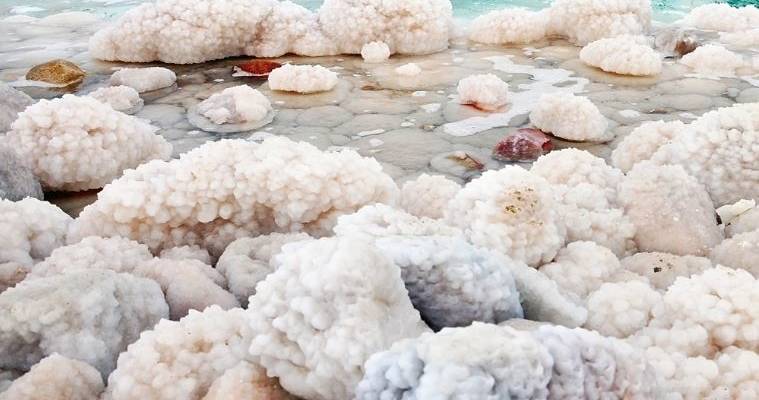Each Temple sacrifice had it own unique set of rules, including which animals were required or qualified to be offered, but they all had one thing in common: Salt.
This week’s Torah portion is Vayikra (Leviticus 1:1-5:26), and it opens the book of Leviticus. The primary theme is the order of sacrifices.
In Biblical and, later, in Temple times, people would bring sacrifices for all types of reasons. Some included a thanksgiving offering, a sin offering or a holiday offering, to name but a few. There was also, of course, the twice-daily sacrifice that was offered every single day of the year.
Although each sacrifice had it own unique set of rules, including which animals were required or qualified to be offered, there was one thing that all sacrifices had in common: salt.
Yes, that’s right. Salt. In fact, salt was so important that a sacrifice offered without salt was considered invalid.
So what is it about salt that made it such a vital component?
The answer can be found in the Talmud, which teaches that at the time of Creation, God separated the “lower world” from the “upper world.” As the Torah says, God separated the waters of the heavens from the waters of the earth (the oceans).
But the story continues.
According to Midrash – Torah commentaries by rabbinic sages – when God separated the higher waters from the lower waters, the waters of the oceans became angry! They were jealous. “Master of the Universe!” they cried out. “We also want to be close to Your heavenly throne. Why have You placed us off in the distance? Why is it that those waters get to be close to you, while we are restricted to the bottom of the earth?”
God told the waters of the oceans that they should not worry and that they had not been cast aside at all. God told them that they will be the ones to ensure that sacrifices could be brought to the Temple. They would be the ones who would provide the salt that was required for the sacrifices. And indeed, where does salt come from? The oceans! And so, the waters of the oceans were appeased and realized that they, too, have an important role in the functioning of the world. They, too, are close to God even though they are seemingly far away from Him.
Still, why salt? Why is salt such an important component of a sacrifice? And most important – why were the oceans so appeased at being awarded the privilege of providing the salt for the sacrifices?
A Common Misconception
The commentators explain that we are often dependent on our environment in order to raise our level of spirituality, our level of observance or our level of piety. Many people feel that social influence is responsible for their level of observance. There is a common misconception that living in a more closed or sheltered environment would make us more pious.
The above may be true. But it certainly does not have to be. Most of us work, live and function in the modern world. We live in the world of now, the world of hustle-and-bustle and the pressures of making a living. We must realize that there is no contradiction to living in such a world and still maintaining a high level of observance and spirituality.
This is the message of the salt. The waters were upset that they were being separated from the “upper world.” The waters wanted that “sheltered environment.” They wanted to be under the influence of the Upper World and all its holiness. They worried that they would not achieve spiritual heights and an attachment to God in the lower worlds. But they were wrong!
By using the salt that comes from the “mundane” world, God is sending an undeniable message: There is no difference. Even if you are at the LOWEST depths of the world – just like the salt and even the world itself when it seems mundane, useless or futile – it does not matter! You have the potential to reach the same heights and importance as those who live in the “higher worlds.”
No matter where you are in life – keep on working on your relationship with God. You can reach great heights notwithstanding your surroundings. It’s as easy as, well, a “pinch of salt!”
By Rabbi Ari Enkin, Rabbinic Director, United with Israel.
Click below to read more insights by Rabbi Enkin on this week’s Torah portion:
https://unitedwithisrael.org/living-torah-bringing-spirituality-to-the-material-world/
https://unitedwithisrael.org/living-torah-gaining-higher-spirituality/
